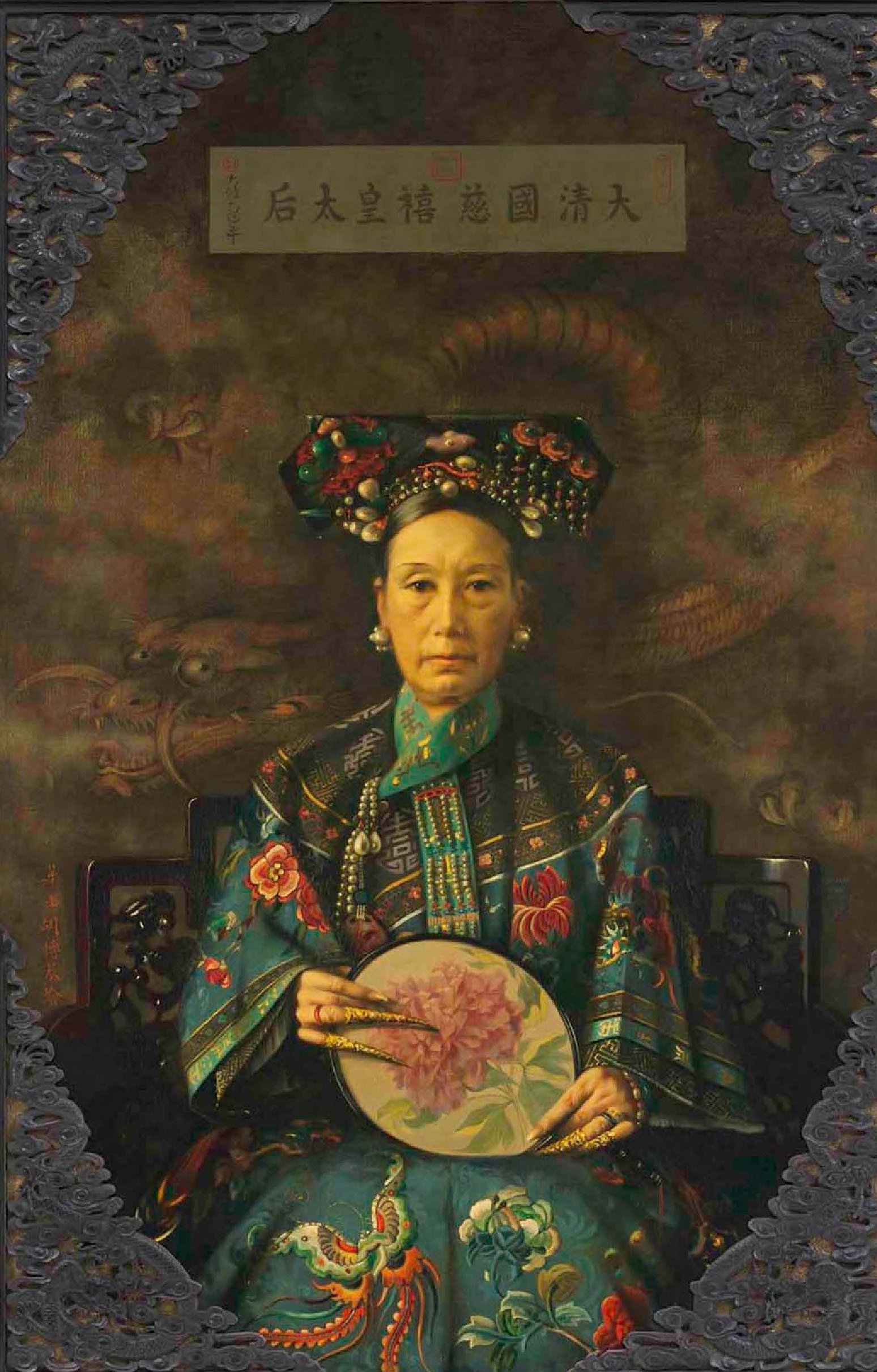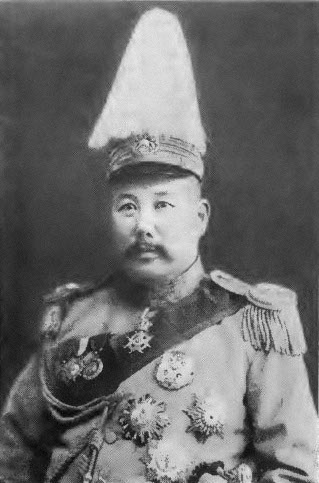|
Battle Of Peking (1900)
The Battle of Peking, or historically the Relief of Peking, was the battle fought on 14–15 August 1900 in Peking, in which the Eight-Nation Alliance relieved the siege of the Peking Legation Quarter during the Boxer Rebellion. From 20 June 1900, Boxers and Imperial Chinese Army troops had besieged foreign diplomats, citizens and soldiers within the legations of Austria-Hungary, Belgium, Britain, France, Italy, Germany, Japan, Netherlands, Russia, Spain and the United States. Background The first attempt to relieve the legations by a force of over 2,000 sailors and marines commanded by British Admiral Edward Seymour was turned back by strong opposition on 26 June. On 4 August a second, much larger relief force, called the Eight-Nation Alliance, marched from Tientsien (Tianjin) toward Peking. The alliance force consisted of 22,000 troops from the following countries: United States - 2,000 (soldiers and marines with artillery); Japan - 10,000; Russia - 4,000 (infantry, Cossa ... [...More Info...] [...Related Items...] OR: [Wikipedia] [Google] [Baidu] |
Boxer Rebellion
The Boxer Rebellion, also known as the Boxer Uprising, the Boxer Insurrection, or the Yihetuan Movement, was an anti-foreign, anti-colonial, and anti-Christian uprising in China between 1899 and 1901, towards the end of the Qing dynasty, by the Society of Righteous and Harmonious Fists (), known as the "Boxers" in English because many of its members had practised Chinese martial arts, which at the time were referred to as "Chinese boxing". After the Sino-Japanese War of 1895, villagers in North China feared the expansion of foreign spheres of influence and resented the extension of privileges to Christian missionaries, who used them to shield their followers. In 1898 Northern China experienced several natural disasters, including the Yellow River flooding and droughts, which Boxers blamed on foreign and Christian influence. Beginning in 1899, Boxers spread violence across Shandong and the North China Plain, destroying foreign property such as railroads and attacking or ... [...More Info...] [...Related Items...] OR: [Wikipedia] [Google] [Baidu] |
Alfred Gaselee
General Sir Alfred Gaselee, , (3 June 1844 – 29 March 1918) was a soldier who served in the Indian Army. Early life Gaselee was born at Little Yeldham, Essex, the eldest son of the Reverend John Gaselee, rector of Little Yeldham, and his wife, Sarah Anne Mant. He entered Felsted School in 1853 and the Royal Military College, Sandhurst, in 1861. Career Gaselee was commissioned as an ensign into the 93rd regiment (later the Sutherland Highlanders) on 9 January 1863.Riddick, p. 266 He was involved in the campaign on the North-West Frontier of India in that year. He was promoted lieutenant on 11 October 1866, transferred to the Bengal staff corps, and joined the 4th Punjab infantry on 27 September 1867. Gaselee went with the Indian force to Abyssinia, where he acted as assistant to the director-general of transport and was present at the capture of Magdala (13 April 1868). He was promoted captain on 9 January 1875, and served with the Jowaki expedition of 1877–8. In th ... [...More Info...] [...Related Items...] OR: [Wikipedia] [Google] [Baidu] |
Siege Of The International Legations
The siege of the International Legations occurred in 1900 in Peking, the capital of the Qing Empire, during the Boxer Rebellion. Menaced by the Boxers; an anti-Christian anti-foreign peasant movement, 900 soldiers, sailors, marines, and civilians, largely from Europe, Japan, and the United States, and about 2,800 Chinese Christians took refuge in the Peking Legation Quarter. The Qing government took the side of the Boxers after the Eight-Nation Alliance invaded Tianjin at the Battle of the Taku Forts (1900), without a formal declaration of war. The foreigners and Chinese Christians in the Legation Quarter survived a 55-day siege by the Qing Army and Boxers. The siege was broken by an international military force, which marched from the coast of China, defeated the Qing Army, and occupied Peking (now known as Beijing). The siege was called by the ''New York Sun'' "the most exciting episode ever known to civilization." Legation Quarter The Legation Quarter was approximately ... [...More Info...] [...Related Items...] OR: [Wikipedia] [Google] [Baidu] |
Peking
} Beijing ( ; ; ), alternatively romanized as Peking ( ), is the capital of the People's Republic of China. It is the center of power and development of the country. Beijing is the world's most populous national capital city, with over 21 million residents. It has an administrative area of , the third in the country after Guangzhou and Shanghai. It is located in Northern China, and is governed as a municipality under the direct administration of the State Council with 16 urban, suburban, and rural districts.Figures based on 2006 statistics published in 2007 National Statistical Yearbook of China and available online at archive. Retrieved 21 April 2009. Beijing is mostly surrounded by Hebei Province with the exception of neighboring Tianjin to the southeast; together, the three divisions form the Jingjinji megalopolis and the national capital region of China. Beijing is a global city and one of the world's leading centres for culture, diplomacy, politics, finance, bu ... [...More Info...] [...Related Items...] OR: [Wikipedia] [Google] [Baidu] |
Song Qing (Qing Dynasty)
Song Qing () (1820–1902), courtesy name Zhusan, was a Chinese general who served the Imperial government during the First Sino-Japanese War and in the Boxer Rebellion. Song was a native of what is now Penglai City, Shandong Province. Passing his imperial examinations for bureaucratic positions, he was assigned as a magistrate to what is now Bozhou in Anhui Province. During the Nien Rebellion, he led a local army against the rebels in southern Henan Province and northern Anhui Province. In 1862, he was promoted to general, and awarded the title of Baturu. He later joined his forces to that of the Huai Army, and assisted Sengge Rinchen in the suppression of the Taiping rebellion, and subsequently (in 1869) fought in the Dungan revolt under the command of Zuo Zongtang. From 1880, Song worked under Li Hongzhang towards overseeing the defence of Manchuria against the Russian Empire, and from 1882 had been stationed in strategic port of Lushunkou, home of the Beiyang Fleet, but did ... [...More Info...] [...Related Items...] OR: [Wikipedia] [Google] [Baidu] |
Ma Yukun
Ma Yukun, courtesy name Jingshan was a Chinese army general who primarily served the Huai Army and the Resolute Army; he served during the First Sino-Japanese War and the Boxer Rebellion. Biography Early Years Ma was born in 1838, at Maji, Anhui, Mengcheng County. His family was poor and were primarily an agricultural one however Ma was a martial artist and became a well known local trainer. Due to his martial arts skills, Song Qing found an appreciation for him and personally enlisted him to attack the Nian Army during the Nian Rebellion, and accumulated meritorious work to the capital, giving him the title of ''Zhenyong Baturu''. In 1874, Ma Yukun and Zuo Zongtang's department jointly fought against the aggression of Agubo and the Russian Empire in the Qing reconquest of Xinjiang, and then led the army to garrison the northwest for more than 10 years. During the Guangxu period, he was transferred to Zhili. In 1894, he was awarded the commander-in-chief of Taiyuan Town, Sh ... [...More Info...] [...Related Items...] OR: [Wikipedia] [Google] [Baidu] |
Ma Haiyan
Ma Haiyan (1837–1900) was a Chinese Muslim General of the Qing Dynasty. Originally a rebel, he defected to Qing during the Dungan revolt and helped crush rebel Muslims. He was the father of Ma Qi and Ma Lin and of Ma Feng. Dong Fuxiang, Ma Anliang and Ma Haiyan were originally called to Beijing during the First Sino-Japanese War in 1894, but the Dungan Revolt (1895) broke out and they were subsequently sent to crush the rebels. During the Hundred Days' Reform in 1898 Dong Fuxiang, Ma Anliang, and Ma Haiyan were called to Beijing and helped put an end to the reform movement along with Ma Fulu and Ma Fuxiang. He fought against the foreign Eight Nation Alliance in the Boxer Rebellion with his nephew Ma Biao serving under him, besieged the Catholic Xishiku Cathedral and the legations, and defeated the Alliance at Battle of Langfang, and died of exhaustion while he and the Kansu Braves The Gansu Braves or Gansu Army was a unit of 10,000 Chinese Muslim troops from the no ... [...More Info...] [...Related Items...] OR: [Wikipedia] [Google] [Baidu] |
Ma Fuxiang
Ma Fuxiang (, Xiao'erjing: , French romanization: Ma-Fou-hiang or Ma Fou-siang; 4 February 1876 – 19 August 1932) was a Chinese military and political leader spanning the Qing Dynasty through the early Republic of China and illustrated the power of family, the role of religious affiliations and the interaction of Inner Asian China and the national government of China. He was a prominent Muslim warlord in northwest China. Ma Fuxiang originally served under Dong Fuxiang, like other Ma Clique Muslim warlords such as Ma Anliang. Ma was born in Linxia, Gansu. He was named the military governor of Xining and then of Altay, in Qing times. He held a large number of military posts in the northwestern region after the founding of the republic. He was governor of Qinghai in 1912, Ningxia from 1912 to 1920, and Suiyuan from 1920 to 1925. Having turned to Chiang Kai-shek in 1928, he was made chairman (governor) of the government of Anhui in 1930. He was elected a member of the Nationa ... [...More Info...] [...Related Items...] OR: [Wikipedia] [Google] [Baidu] |
Ma Fulu
Ma Fulu (Chinese: 马福禄, Pinyin: Mǎ Fúlù, Xiao'erjing: ; 1854 – 1900), a Chinese Muslim, was the son of General Ma Qianling and the brother of Ma Fucai, Ma Fushou and Ma Fuxiang. He was a middle born son. In 1880, Ma Fulu went to Beijing to take advanced military exams when he had an audience before the Emperor. He accidentally committed a faux pas since he did not know proper palace etiquette and subsequently served as a guard for the Emperor to make up for this incident. He studied at a martial arts hall and military school. In 1895, he served under general Dong Fuxiang, leading loyalist Chinese Muslims to crush a revolt by rebel Muslims in the Dungan revolt (1895–1896). His loyalist Muslim troops slaughtered and beheaded the rebel Muslims and his commanding officers received the heads of the rebels from Ma. In 1897, a military Jinshi degree was awarded to Ma Fulu. Ma was transferred along with his brother Ma Fuxiang and several cousins to serve as officers under ... [...More Info...] [...Related Items...] OR: [Wikipedia] [Google] [Baidu] |
Dong Fuxiang
Dong Fuxiang (1839–1908), courtesy name Xingwu (), was a Chinese general who lived in the late Qing dynasty. He was born in the Western Chinese province of Gansu. He commanded an army of Hui soldiers, which included the later Ma clique generals Ma Anliang and Ma Fuxiang. According to the Western calendar, his birth date is in 1839. Religion Dong Fuxiang was a non-Muslim Han Chinese general who commanded Muslim Hui soldiers. Conflicting accounts were given about his religion and ethnicity. Contemporaneous Western sources claim he was Muslim, which was a mistake, but modern Western sources either say he was not Muslim, or did not mention his religion at all when talking about him, and some mistakenly still say he is Muslim. The only thing that was clear about him was that he was familiar with the Muslim militia of Gansu, and commanded Muslim troops in battle. The British consular officer Erich Teichman traveling in Gansu was repeatedly told that Dong Fuxiang was Han Chinese and ... [...More Info...] [...Related Items...] OR: [Wikipedia] [Google] [Baidu] |
Zaiyi
Zaiyi (; Manchu: ; ''dzai-i''; 26 August 1856 – 10 January 1923),Edward J.M. Rhoads, ''Manchus & Han: Ethnic Relations and Political Power in Late Qing and Early Republican China, 1861–1928'', University of Washington Press, 2001 better known by his title Prince Duan (or Prince Tuan, ), was a Manchu prince and statesman of the late Qing dynasty. He is best known as one of the leaders of the Boxer Rebellion of 1899–1901. Early life and career Zaiyi was born in the Aisin Gioro clan as the second son of Yicong (Prince Dun), the fifth son of the Daoguang Emperor. His family was under the Bordered White Banner of the Eight Banners. He was adopted by his father's cousin, Yizhi (奕誌; 1827–1850), who had no son to inherit his Prince Rui peerage. In 1861, Zaiyi was made a ''beile'', before succeeding Yizhi as a ''junwang'' (second-rank prince) under the title "Prince Duan of the Second Rank" (端郡王) in 1894. Prince Duan sided with Empress Dowager Cixi and opposed t ... [...More Info...] [...Related Items...] OR: [Wikipedia] [Google] [Baidu] |
Ronglu
Ronglu (6 April 1836 – 11 April 1903), courtesy name Zhonghua, was a Manchu political and military leader of the late Qing dynasty. He was born in the Guwalgiya clan, which was under the Plain White Banner of the Manchu Eight Banners. Deeply favoured by Empress Dowager Cixi, he served in a number of important civil and military positions in the Qing government, including the Zongli Yamen, Grand Council, Grand Secretary, Viceroy of Zhili, Beiyang Trade Minister, Secretary of Defence, Nine Gates Infantry Commander, and Wuwei Corps Commander. He was also the maternal grandfather of Puyi, the last Emperor of China and the Qing dynasty. Early life and career Ronglu was born in the Manchu Guwalgiya clan, which was under the Plain White Banner of the Manchu Eight Banners. His grandfather, Tasiha (塔斯哈), served as an Imperial Resident in Kashgar. His father, Changshou (長壽), was a ''zongbing'' (總兵; a military commander). Ronglu was a ''yinsheng'' (蔭生), a type ... [...More Info...] [...Related Items...] OR: [Wikipedia] [Google] [Baidu] |






